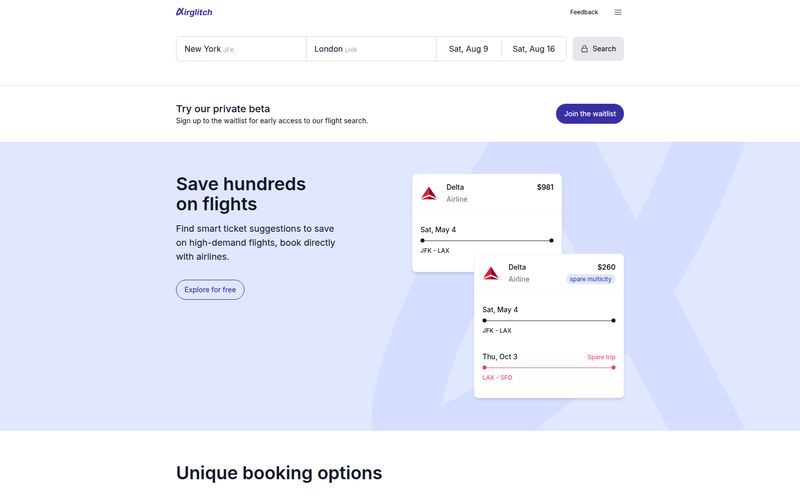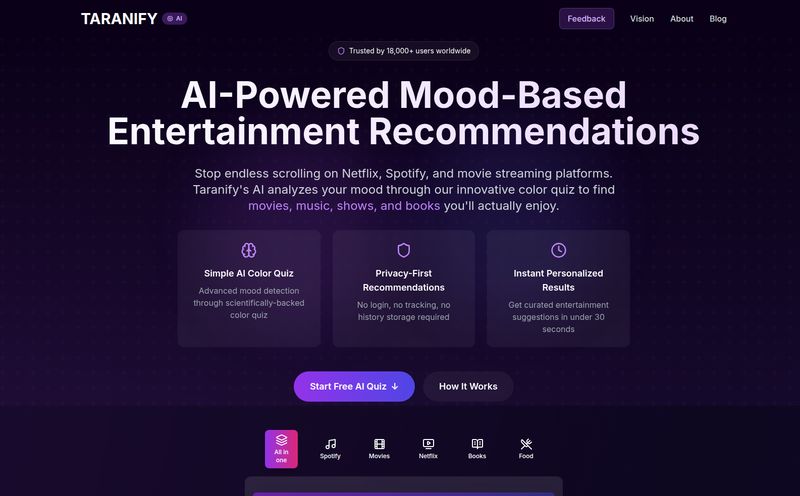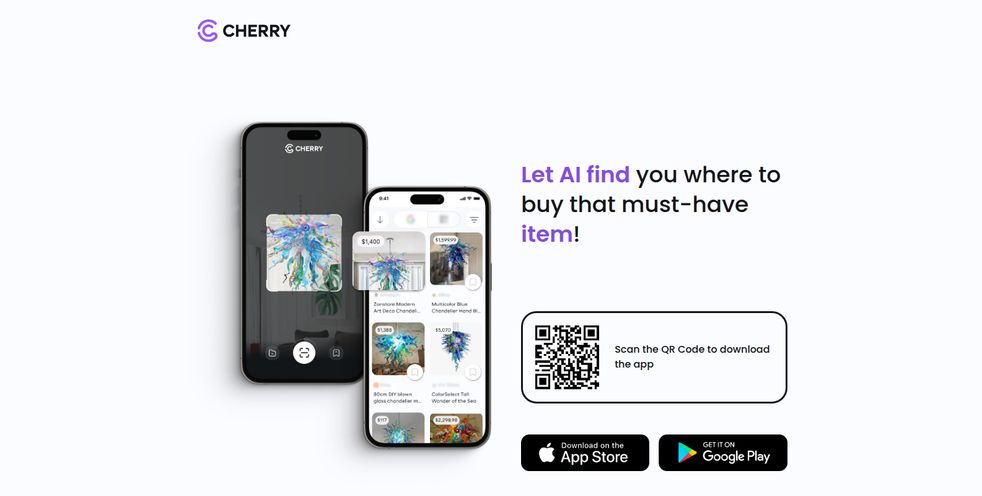There are few things more soul-crushing for a surfer than the pre-dawn alarm, the cold wetsuit struggle, the bleary-eyed drive to the coast... only to be greeted by mushy, onshore slop. We’ve all been there. You checked the forecast. The charts looked promising. The little arrows and numbers all pointed to a good day. And yet, the reality is a choppy, unsurfable mess. For years, we’ve relied on a mix of raw data from sources like NOAA, interpreted reports from giants like Surfline, and a healthy dose of local knowledge. But what if there was another way?
Enter the age of AI. It’s writing our emails, making our art, and now, it’s apparently trying to predict our waves. I’ve been in the SEO and tech game for a while, so my natural reaction to anything “AI-powered” is a healthy dose of skepticism. But as a surfer, I’m also an eternal optimist. So when I heard about a new tool called RideAI, I had to see what was up. Is this the game-changer we've been waiting for, or just another tech solution looking for a problem?
What Exactly is RideAI? (And Why Should You Care?)
At its heart, RideAI is a map-based app designed to give you surf reports. Simple enough. But its main hook is the use of an “AI agent” to interpret the raw data. Instead of just showing you a chart that says “Swell: 3.2ft @ 9s from 210° SW,” the idea is that RideAI’s brain will chew on all the variables—swell period, direction, wind, tide, probably even the specific bathymetry of a spot—and spit out a report that sounds more like a human. More like a friend who just got out of the water and can tell you if it's actually any good.
Think of it like this. Traditional surf forecasts give you the ingredients: flour, sugar, eggs. You, the surfer, have to be the baker and figure out if those ingredients will make a delicious cake or a sloppy mess. RideAI wants to be the master baker who just tells you, “Hey, the cake is gonna be great today.” A bold promise, for sure.
First Impressions: A Clean Map and a Simple Promise
Firing up the app, the first thing I noticed was the clean, uncluttered interface. It’s basically a map. That’s it. No distracting banners, no confusing menus. Just a big, friendly search bar prompting you to look up your favorite spot. The examples given—‘Waikīkī’, ‘Huntington Beach’, or ‘Cocoa Beach’—show it's aiming for some of the planet's most popular breaks right out of the gate.

Visit RideAI
There's a certain elegance to this simplicity. In an age where every app wants to be a “super app” with a million features, RideAI’s focus is refreshing. It feels less like a complex meteorological tool and more like Google Maps for waves. You just type in where you want to go, and it gives you the conditions. I appreciate that. Sometimes, you don’t want to read a textbook; you just want to know if you should grab your board.
The “AI Agent”: Your Personal Surf Guru or Just More Tech Hype?
This is the make-or-break feature, isn't it? The whole proposition rests on whether this AI is any good. The term “AI-generated report” could mean a lot of things. On one end, it could be a simple template that just fills in the blanks from a standard data feed. Pretty basic. On the other, more exciting end, it could be a truly sophisticated model that has learned the nuances of specific surf spots.
Does the AI know that a certain swell direction closes out at Huntington Pier but creates perfect A-frames a mile down the coast? Does it understand that a 15-knot offshore wind at dawn is gold, but that same wind at noon could be a problem? This is the kind of localized, almost-sentient knowledge that separates a great forecast from a generic one. My gut tells me we're in the early days, but the potential is massive.
Of course, we have to talk about the elephant in the room: AI can be wrong. Famously wrong. We've all seen AI-written articles that make no sense or AI images with people who have seven fingers. Relying on an AI for something as dynamic and chaotic as the ocean... well, it requires a leap of faith. I wouldn’t be betting my life on its report during a massive winter swell just yet. But for the everyday surf check? I'm intrigued.
How RideAI Stacks Up Against the Old Guard
For years, the surf forecast world has been dominated by a few key players. So, how does a newcomer like RideAI fit in? I don't see it as a direct replacement, at least not yet. I see it as a different tool for a different job. The established platforms like Surfline are incredible data hubs. You get live cams, detailed charts, expert analysis, and a firehose of information. They are fantastic for the dedicated surfer who wants to get into the weeds of swell mechanics.
RideAI seems to be targeting a different person, or maybe the same person on a different day. It’s for the surfer who is short on time. The traveler who just landed in a new town and wants a quick, understandable report without having to learn the local intricacies. It’s for the beginner who finds the complex charts on other platforms intimidating. It’s less about showing you the data and more about interpreting it for you. It's a different philosophy, and honestly, there's room for both.
The Big Question: What's the Price?
Here’s the thing. I looked. I searched. I couldn’t find any pricing information for RideAI. Is it free? Is it a subscription? Is it in a beta phase? Your guess is as good as mine. This lack of transparency is a bit of a hurdle, but it's common for new tech products finding their feet.
My hope is for a freemium model. Maybe you get a few free reports a week, or basic AI analysis is free while a more advanced “guru” mode is a paid feature. A flat monthly subscription could also work if the reports are consistently accurate. For now, we'll have to wait and see. If they get the pricing wrong, it could sink the ship before it even leaves the harbor.
The Potential and the Pitfalls
So, let's break it down. The upside here is pretty clear. The map-based interface is intuitive and a genuine pleasure to use. The promise of an AI that can provide deeper, more human-like insights is the holy grail of surf forecasting. If they can pull it off, it could simplify the process of scoring good waves for millions of people.
But the 'hmm' moments are just as real. The biggest question mark hangs over the AI's accuracy. Is it truly learning and interpreting, or is it just a fancy wrapper on existing NOAA data? Without extensive real-world testing and user feedback, it’s impossible to say. A bad AI report is worse than no report at all because it creates false hope. And nothing is worse than false hope when it comes to surf.
Who is RideAI Actually For?
After playing around with it and thinking about its place in the market, I have a pretty clear picture of the ideal RideAI user. It’s not necessarily the semi-pro who lives and breathes isobaric charts. It’s for the everyday surfer, the weekend warrior. It's for the person who loves surfing but doesn't have the time or inclination to become a hobbyist meteorologist. It’s for the family on vacation at Cocoa Beach who just wants to know if the waves are safe for the kids. It's about accessibility and ease of use, and in that, I think it has a real shot.
Frequently Asked Questions about RideAI
- What is RideAI?
- RideAI is a modern surf forecast app that uses a map-based interface and an AI agent to provide easy-to-understand reports on wave and weather conditions at surf spots around the world.
- How is RideAI different from other surf forecast apps?
- The main difference is its reliance on an AI interpreter. While other apps provide a lot of raw data and charts for users to analyze themselves, RideAI aims to synthesize that information into a simple, human-like recommendation or summary.
- Is RideAI free to use?
- Currently, there is no public information available regarding the cost or pricing model for RideAI. It may be in a free beta period, or pricing details have not yet been announced.
- Can I trust the AI surf report?
- That’s the million-dollar question. Like any AI, its accuracy can vary. It's a new technology, so it's best to use it as a guide and cross-reference with your own knowledge or other sources, especially in serious conditions. Over time, as the model improves, its reliability should increase.
- What surf spots can I check on RideAI?
- The app allows you to search for spots. Examples like Waikīkī, Huntington Beach, and Cocoa Beach suggest it covers major international locations, but its full scope isn't documented yet.
- Does RideAI have live surf cams?
- Based on the available information, the focus is on the map and the AI report. There is no mention of live camera feeds, which remain a key feature of other established platforms.
So, What's the Verdict?
Wrapping this up, I’m walking away cautiously optimistic about RideAI. I love the concept. I love the clean interface. The world of surf forecasting is ripe for a little disruption, and an intelligent, interpretive approach is a fantastic angle. It's a refreshing change of pace from the data-overload we've gotten used to.
The success of this whole thing will hinge on the quality of its AI. If it can consistently deliver accurate, nuanced reports that genuinely help people score better waves, it’ll be a massive hit. If not, it'll be a novelty that fades away. For now, it’s a fascinating tool with a ton of potential. I'll definitely be keeping it on my phone and checking it against my local break. Why not? The next perfect wave might just be an AI-click away.
Reference and Sources
- An overview of surf forecasting from Surfline.
- Public weather and wave model data from the National Oceanic and Atmospheric Administration (NOAA).
- A general article on how surf forecasting works from Surfer Magazine.



